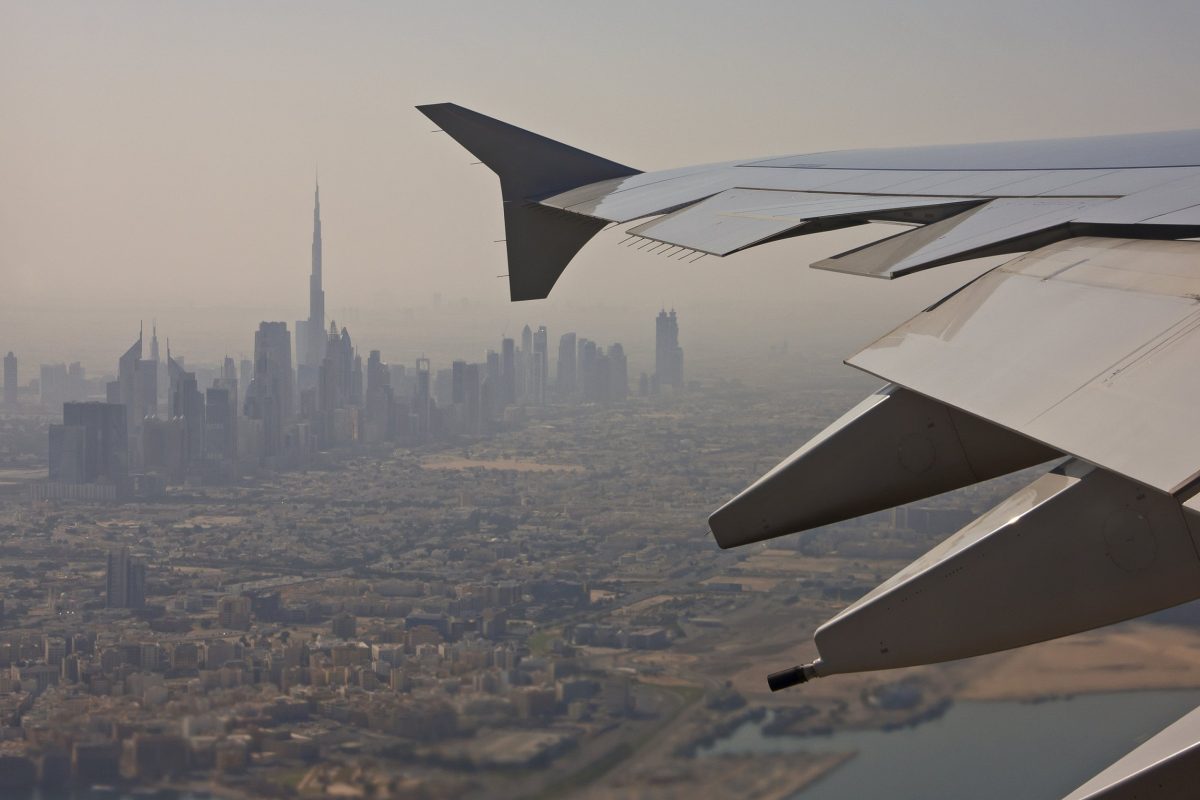
Qatar announced it was temporarily suspending traffic to its airspace on Monday as travel disruption continues in parts of the Middle East.
British Airways was among the airlines that cancelled flights to Dubai and Qatar following US strikes on Iran on Sunday, although it was set to resume schedules on Monday.
What is the FCDO advice?
The latest travel update for Qatar from the UK’s Foreign, Commonwealth and Development Office (FCDO) said: “Following a US security alert for US nationals in Qatar, out of an abundance of caution, we recommend that British nationals in Qatar shelter in place until further notice.
“Follow instructions from local authorities. The FCDO is in contact with local authorities and international partners, and will provide further updates as the situation develops.”
The FCDO had previously updated its travel advice for several countries in the region, including Israel, Jordan, the United Arab Emirates (UAE), Qatar, Saudi Arabia, and Kuwait.
“Ongoing hostilities in the region and between Israel and Iran have the potential to deteriorate further, quickly and without warning including since US military strikes against Iran on 22 June,” states the advice.
“There is a possibility of travel disruption, including short-notice airspace closures, delayed and cancelled flights, and other unanticipated travel impacts.”
It suggested that travellers read its advice on being affected by a crisis abroad, monitor media for the latest information, be vigilant, follow the instructions of local authorities and check with relevant airlines for the latest updates before travelling.
Which airlines have cancelled flights?
BA suspended its flights to Dubai and Doha on Sunday and some Gulf airlines changed schedules in the region.
In a statement on Monday morning, BA said: “Our flights to Dubai and Doha are scheduled to operate as normal and our teams continue to keep the situation under review.”
Flightradar24 showed that while there were cancellations and delays, many flights were landing at Dubai as scheduled on Monday. This included an Emirates flight from Heathrow.
Several airlines had cancelled or diverted routes in the region before 22 June. Emirates has temporarily suspended all flights to Jordan (Amman) and Lebanon (Beirut), until and including 22 June and to Iran (Tehran) and Iraq (Baghdad and Basra), until and including 30 June.
Low-cost carrier Wizz Air has suspended all flights to and from Amman and Tel Aviv until 15 September.
Etihad has suspended all flights between Abu Dhabi and Tel Aviv until and including 30 June.
Qatar Airways said on its website that it has “rescheduled a number of flights over the coming weeks in order to preserve the integrity, reliability and resilience of the airline’s global network. In some cases, departure times may be earlier than originally scheduled.
“Ahead of travel, passengers are urged to verify their flight departure times via qatarairways.com or by using the Qatar Airways mobile app to ensure a seamless journey.”
Where is airspace closed?
Israel and Iran continue to exchange strikes after Israel began attacks on 13 June. Airspace in Israel, Iran, Iraq and Syria remains closed.
Lebanon and Jordan are considered high-risk zones by the European Union Aviation Safety Agency (EASA) and the US Federal Aviation Administration.
Bernard Lavelle, chief aviation consultant at BL Aviation Consulting, said airspace closures cause delays for passengers as airlines scramble to re-route their flights, which is likely to increase flight times.
He added: “Cancellations are also likely if delays build up to a point where planes are running so late that it makes sense for the airline to cancel the flight altogether. This may well occur if airlines are forced to re-route their flights, cramming more aircraft into smaller airspace sectors.”
What do airspace closures mean for flight times?
Saj Ahmad, chief analyst at StrategicAero Research, told The i Paper : “Longer routes across northern Saudi Arabia, into Egypt and the Mediterranean, means that flight times have increased, fuel costs have increased and the longer this war continues, fares will go up too.
“The likes of Emirates, Etihad, Qatar Airways, Oman Air, Kuwait Airways and Saudia have well over 20 flights a day criss-crossing that Iranian/Iraqi (and Syrian) airspace – similarly, British Airways and Virgin will also be impacted, too.”
Can I cancel my travel plans?
Those who were due to travel between the UK and Israel have a right to choose between alternative dates or a full refund from their provider as the Foreign Office is advising against all travel to Israel.
There are no new Foreign Office warnings against travel to the UAE, Oman, Saudi Arabia or Qatar. Britons who have booked a trip to these destinations but no longer wish to travel do not have a right to a refund under UK law. Should they wish to change the dates of their trip, they should contact their travel providers directly.
What are my rights if my flight is cancelled or delayed?
Passengers flying from the UK on any airline, arriving at an airport in the UK on an EU or UK airline or arriving at an airport in the EU on a UK airline, have rights under UK law. Airlines must provide care and assistance, including food and drink, and accommodation if necessary, for significant delays.
Flights that are outside of the EU or UK are not covered by these rights, although airlines should do what they can to care for passengers affected by delays.
For cancelled flights that are covered by UK law, airlines should offer a choice between a refund or an alternative flight. Compensation for cancellations with less than 14 days notice only applies when the cancellation is the airline’s fault

Posting Komentar